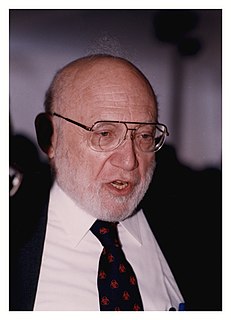A Quote by Sarah Parcak
If you really want to be a good archaeologist, you have to understand ancient DNA; you have to understand chemical analysis to figure out the composition of ancient pots. You have to be able to study human remains. You need to be able to do computer processing and, in some cases, computer programming.
Related Quotes
Most programs are not write-once. They are reworked and rewritten again and again in their lived. Bugs must be debugged. Changing requirements and the need for increased functionality mean the program itself may be modified on an ongoing basis. During this process, human beings must be able to read and understand the original code. It is therefore more important by far for humans to be able to understand the program than it is for the computer.
I was really looking at computers as a way to understand the mind. But at M.I.T., my mind was blown by having a whole computer to yourself as long as you liked.I felt a surge of intellectual power through access to this computer, and I started thinking about what this could mean for kids and the way they learn. That's when we developed the computer programming language for kids, Logo.
My background, I really am a computer hacker. I've studied computer science, I work in computer security. I'm not an actively a hacker, I'm an executive but I understand the mindset of changing a system to get the outcome that you want. It turns out to make the coffee, the problem is actually how the beans get turn into green coffee. That's where most of the problems happen.
Fuzzy logic will produce a computer that will even seem to have a personality. It will seem to have a character. It will be able to talk to you. It will be able to translate from one language to another instantaneously. You will be able to give it instructions. You will be able to tell it stories. If it doesn't understand something, it will ask you.
One can think of any given axiom system as being like a computer with a certain limited amount of memory or processing power. One could switch to a computer with even more storage, but no matter how large an amount of storage space the computer has, there will still exist some tasks that are beyond its ability.




































